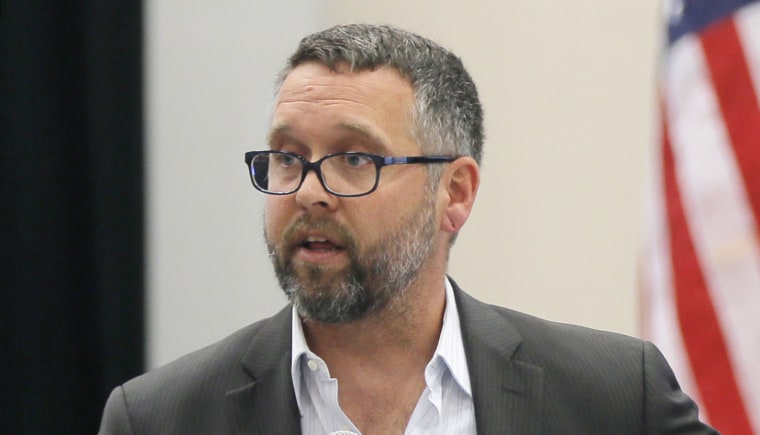Last Friday, the right-wing television outlet Newsmax issued a public apology to one of Dominion Voting Systems' top employees over its false allegations that the voting technology company engaged in fraud in the 2020 election. Newsmax's belated capitulation to the truth shows that defamation claims could be a major way to combat disinformation.
70 percent of Republicans believe President Joe Biden didn't win enough votes to be elected.
Seventy percent of Republicans believe President Joe Biden didn't win enough votes to be elected, according to a recent CNN poll. This isn't just wrong; it's deeply problematic that, six months after the election, half of the members of one of our two major parties have concluded that there's solid evidence that democracy was subverted when it wasn't.
We know the election wasn't stolen because the election was actively and heavily litigated. No judge, federal or state, Republican or Democratic, found evidence that the election was stolen. William Barr, President Donald Trump's own attorney general, concluded that evidence of widespread voter fraud was nonexistent. The election was also, like other presidential elections in our country, run not just state by state, but in many ways county by county. State and local officials on both sides of the political spectrum ran the election and tabulated our votes. They again arrived at the same conclusion as the judges: The election wasn't stolen.
What is the difference between believing the election was stolen and having a deep and abiding faith that you need to crack a window for the tooth fairy? One of these myths is peddled by some members of the conservative media and some high-profile surrogates. The other isn't.
How does a voting technology company clear its name — and the stench of political disinformation in the process?
Some of right-wing media's favorite talking heads and supporters of Trump — like his former personal attorney Rudy Giuliani and attorney and supporter Sidney Powell — have made a habit of hawking disinformation. Many of these conspiracy theories advanced the claim that Dominion Voting Systems rigged the election, a claim that defies both facts and logic. But the accusations have had serious effects: One employee of Dominion, security director Eric Coomer, has been forced to live in hiding for months because of these false claims.
How does a voting technology company clear its name — and the stench of political disinformation in the process? Dominion filed defamation suits against Fox News, Giuliani, Powell and MyPillow CEO Mike Lindell, while Coomer separately sued Newsmax. A defamatory statement is, generally put, a false statement that harms someone's reputation. Defamation laws vary by state, but they all generally require that plaintiffs, Coomer in this case, be able to demonstrate three things: that the people they are suing communicated or published a false statement of fact, that the people communicating or publishing that false statement of fact had the requisite state of mind (meaning they knew or had reason to know the statement was false; again this varies a bit) and that they suffered damages as a result.
It's another victory in the battle against the Big Lie after the threat of legal action from Smartmatic, another voting machine company, also forced retractions from Newsmax and Fox News in December. The fact that Newsmax went even further when it apologized to Coomer and retracted its claims about Dominion in the face of a defamation lawsuit shows that these suits can lead to real action.
But defamation suits aren't a full solution to disinformation. By definition, one can sue for defamation only after the allegedly false statement is out there and has harmed someone's reputation. This, of course, means that many, many people have read, seen or heard the falsehoods about the election and will continue to believe them, even after public apologies are delivered. In addition, these suits require access to lawyers and resources, making them hard for many of the victims to pursue.
Defamation suits are akin to the costly medicine to help fight the infection of disinformation, but they aren't able to inoculate the public in the first place. Yes, the next Newsmax or Giuliani may think twice before they propagate lies and falsehoods, proving these suits have a deterrent effect on false speech — but it's not a guarantee that Trump and his ilk will heed that warning.
We should be circumspect about weaponizing defamation suits as a possible tool to silence the legitimate media.
In addition, we should be circumspect about weaponizing defamation suits as a possible tool to silence the legitimate media, much as Trump has suggested over the years. It isn't difficult to imagine how a local outlet with few resources would become worried about its ability to survive, even in the face of a baseless defamation suit. It takes as much money, if not more, to defend against lawsuits than it does to file them.
The better solution is to address the root cause of disinformation. But this, of course, is a much steeper mountain to climb. We must address both sides of the disinformation problem, those who sell it and those who buy it. We must prevent those with platforms, which, thanks to the internet, means just about everyone, from spewing disinformation. And perhaps more important, we must also engage in a basic disinformation literacy campaign to help people toss that disinformation in a bonfire, where it belongs. In the meantime, I'm glad that we have at least one tool that is leading to real results in the long, hard war against disinformation.

